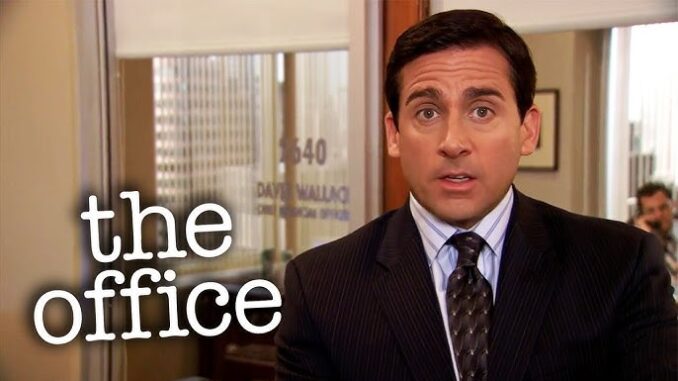
Michael Scott: The Anti-Lowballer
Michael Scott, regional manager of Dunder Mifflin Scranton, is a master of miscalculation. His social missteps, strategic blunders, and general obliviousness are legendary. Yet, amidst the chaos and cringeworthiness, one thing remains surprisingly consistent: Michael Scott does not play the lowball game. While his management style might be questionable, and his negotiation tactics often veer into the absurd, he surprisingly avoids the cutthroat, manipulative world of offering insultingly low prices. This isn't a strategic choice, a calculated move, or even a conscious decision. It's simply not in his nature, a paradox stemming from his desperate desire for approval, coupled with a bizarre, almost naive, sense of fairness.
Firstly, Michael craves validation above all else. He wants to be liked, admired, and seen as generous. Offering a ridiculously low price, especially in a business context, is often perceived as aggressive and even disrespectful. This clashes directly with Michael’s need to be seen as a good guy. Think about his attempts to throw elaborate parties for his employees, often spending exorbitant amounts of company money. This isn’t fiscally responsible, but it’s driven by the desire to be seen as a benevolent benefactor, a generous leader who cares for his team. A lowball offer simply doesn't fit that image. It would expose him to potential ridicule, criticism, and, worst of all, dislike. Michael simply cannot risk the social fallout.
Secondly, Michael’s understanding of value is profoundly warped. He lacks the nuanced, pragmatic approach necessary to accurately assess the worth of goods or services. He's easily swayed by emotional arguments, sentimental connections, and, frankly, whatever he finds most amusing at the moment. Remember his disastrous attempt to buy a condo, where he was completely manipulated by the real estate agent into bidding far more than it was worth, simply because he liked the "romantic" story behind the previous owner? This inherent vulnerability makes him susceptible to overspending rather than underspending. He's more likely to be taken advantage of than to engage in predatory pricing.
Furthermore, beneath the layers of absurdity, Michael possesses a peculiar sense of fairness. While often misguided and poorly executed, he genuinely believes in treating people with respect. He champions the underdog, fights for perceived injustices (even when they’re non-existent), and generally strives to be a decent human being, albeit in his own idiosyncratic way. A lowball offer is inherently unfair, an attempt to exploit someone's desperation or undervalue their contribution. It contradicts his flawed, yet present, moral compass. Even when negotiating with Vance Refrigeration, a known adversary, Michael doesn't stoop to offering a pittance; he focuses on outsmarting them through ridiculous stunts and convoluted schemes, not by devaluing their product.
Finally, Michael's tendency to overcommit and overpromise prevents him from playing the lowball game. He's notorious for making grand gestures and offering generous deals without fully considering the consequences. He's more likely to offer a higher commission to a new sales rep than to haggle with a vendor for a lower price. This is because he focuses on the potential for future rewards and the immediate gratification of appearing generous, rather than the long-term implications of his financial decisions. He lives in a perpetual state of optimistic delusion, believing that everything will work out in the end, even when faced with mounting evidence to the contrary.
In conclusion, Michael Scott's avoidance of the lowball game isn't a strategic masterstroke. It's a byproduct of his personality flaws, his yearning for approval, his distorted perception of value, and his surprisingly unwavering, albeit often misplaced, sense of fairness. He may be a terrible manager, a cringe-inducing comedian, and a source of endless embarrassment for those around him. However, in a world driven by ruthless capitalism and relentless competition, Michael Scott stands as a peculiar anomaly: a man who, in his own bizarre way, chooses kindness and generosity over cutthroat tactics, even if it means paying a little (or a lot) more in the end. He may not be the best at business, but he's certainly unique, a testament to the fact that even in the cutthroat world of paper sales, there's always room for a little bit of Michael Scott.